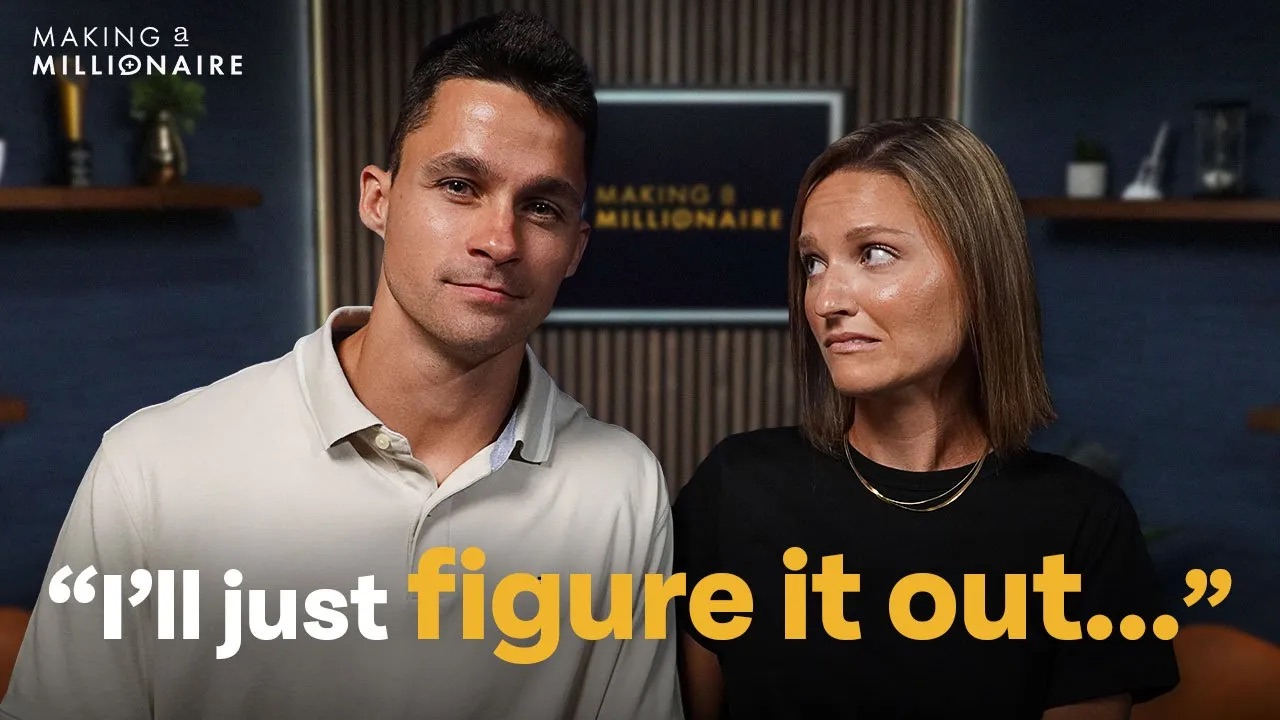We're going to move forward to the next question from p61xbp, a hard username to remember, but an interesting question. Elon's kids, that was good, actually, good job, Brian. But yeah, like I said, an interesting question. He says, "I get torn between the Ramsey baby steps and
the Financial Order of Operations. Would it be okay to invest 20 percent and pay off the house early at the same time? It's the best of both worlds, right? Sacrifice today for a better tomorrow. What do you think?"
You know, it's funny, we were hanging out with Dave and talking with some of his folks last week, and we were kind of going through that. We have these different ideas, right? We've got these, they've got their baby steps, and we've got
the Financial Order of Operations, and it's so funny how people get so bit out of shape trying to compare them to one another. And this is what we said, you know, we have a lot of folks that come to us from the Ramsey ecosystem or that they were kind of brought up through Dave, and they'll sit there and apologize to us, "Hey, I paid off my house early. I'm so sorry. Am I gonna be okay?" And we're like, "Yeah, of course you're going to be okay." There are multiple paths to wealth. What we are trying to lay out for you is what we believe to be the optimum strategy. It does not mean that it has to be the exact strategy that you follow.
I have tons of friends who prioritize paying off their house, and they did it while they were young. And what I say to them is, "Great, now that you've done that, that's one less thing. But now you've got to make up for lost time. You have to save more aggressively than perhaps you would have had to if you would not have done that so aggressively." But I don't know that it has to be an either-or. If I follow this way, I'm going to make it to financial independence. If I follow it this way, I'm not going to. The beautiful thing, if you kind of boil down all the systems out there that work, is they're kind of precipitated upon the same things: live on less than you make, save for the future, have money saved up for an emergency, control how much risk you're taking. Those are all fundamentals of every plan, whether it's ours, whether it's Dave's. So you have to figure out how does that work inside of your financial situation? Because money is nothing more than a tool that allows you to do the things that you want to do. So what you do with your money is less about what we tell you to do with your money; it's more about what are your goals. And if your goals are financial independence and optimization, then we think the financial order of operations is a fantastic way to work towards those goals in a really, really efficient manner.
Yeah, by the way, I think, let me bring this down to its most elemental forms. There are get-wealthy activities and then there are stay-wealthy activities. Paying off your mortgage is definitely a stay-wealthy activity, but you've got to also make sure you first get wealthy. First. And I think that's the problem I have with paying off a low-interest mortgage, especially it now, all in retrospect, everybody looking at their two and a half to three and a half percent mortgages, like, "Man, why didn't I go borrow that big house up on the hill?" I've seen a lot of people have regrets about that because they paid off something at two and three percent, and they're like, "What in the world was I doing that when you could have been investing that money?"
That's, I want to get you too wealthy before I have you doing activities that are to stay wealthy. It's all on that what's the opportunity cost of a transaction because there's a risk that you're not going to be wealthy just like there's a risk you'll lose your wealth down the road. But here's the reality of the situation. I was on Andy Hill's show, it's probably a little over a year ago or so, and he asked me all about this, and I said, "Andy, come on. I know you paid off your house, you're very proud of that, and I think that's kudos, but I was like, tell me this, were you also saving and investing at least 25 percent of your money before you were paying it off?" And he was like, "Yeah." And I was like, "We don't have a difference of opinion then."
Because I tell you, once you get to step eight, if you go to
moneyguy.com/resources, you can download your own free copy. If you go to
learn.moneyguy.com, we have a deep dive, of course, and we do cover this. Step eight is when you get to prepaid expenses or funding those abundance goals that I like to talk about. And the fact that, yeah, if you get to the point that you're already doing what you're supposed to and you're saving and investing 25 percent, some people want to go buy a Tesla at that point, some people want to fund their kid's college, some people just want to pay off the mortgage. More power to you, rock and roll, make it happen, let it happen.
The only thing that I think I differ on Dave on is that he talks about 15, we talk about that 20 to 25 percent. And I'm not even mad about Dave for that difference, is because Dave wrote his primary principles in like the mid-'90s, it's like '95, '96, somewhere in that range. So back then, I mean, you think about "The Wealthy Barber" was 10 percent savings rate. So for me to come in at 20, 25, there has to be something different. And it is. The world is completely different. Pensions are almost extinct at this point. If you look at Social Security, it doesn't look good for the long term. More and more is falling upon your shoulders. So we've just modernized, that's all it is, is that we have essentially updated that obligation of 15 to 10 percent for "The Wealthy Barber," 15 for "The Total Money Makeover," and now we are just the new, new and improved modern version that takes into account all the variables that are going on in the world. And that's why we know that that responsibility is heavy, so make it happen sooner.













